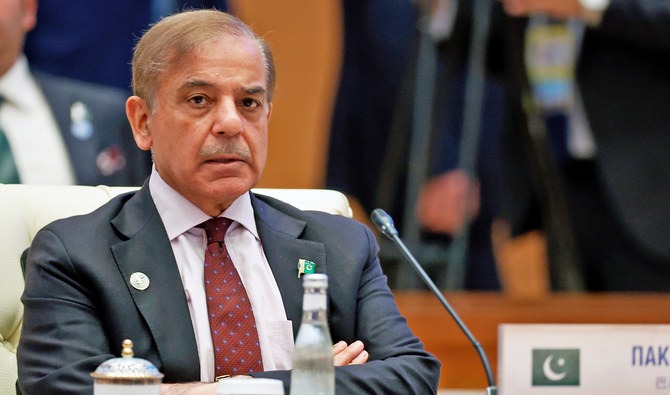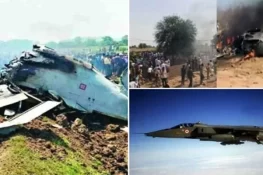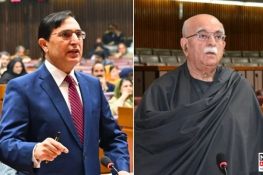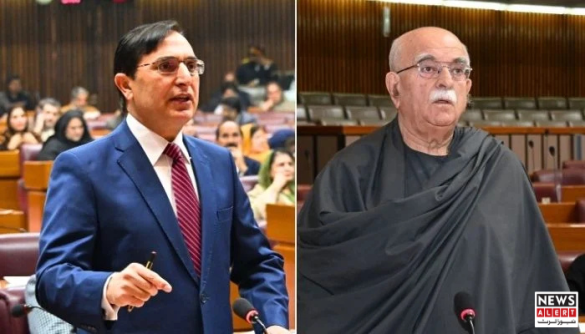Prime Minister’s Outreach to Opposition Leaders
Amid worsening monsoon rains and flood-related devastation, Prime Minister Shehbaz Sharif has contacted several key political leaders, assuring them of federal assistance in managing the crisis. According to official statements, the Prime Minister held separate telephone conversations with Pakistan Peoples Party (PPP) Chairman Bilawal Bhutto Zardari, Jamaat-e-Islami Emir Hafiz Naeem ur Rehman, and Federal Education Minister Khalid Maqbool Siddiqui, who is also a leader of the Muttahida Qaumi Movement (MQM).
Sharif expressed condolences over the loss of lives caused by flash floods, urban inundation, and collapsing infrastructure in different regions. He pledged that federal institutions, including the National Disaster Management Authority (NDMA), would extend “all possible support” to provincial authorities.
Focus on Sindh and Karachi
During his call with Bilawal Bhutto Zardari, the Prime Minister highlighted concerns over the situation in southern Sindh, particularly Karachi, where heavy downpours have submerged roads and neighborhoods. The city, already struggling with poor drainage systems, has faced power outages and major traffic disruptions in recent days.
Sharif expressed solidarity with the victims’ families and instructed the NDMA to maintain close coordination with the Sindh government. He emphasized the need for early warning systems, better public communication, and logistical support for local disaster management authorities.
Observers note that Karachi, a metropolis of more than 20 million people, has been especially vulnerable to flooding during monsoon seasons. In past years, severe rainstorms have led to dozens of deaths and widespread property damage, exposing the city’s weak infrastructure.
Engagement with Jamaat-e-Islami
In his discussion with Jamaat-e-Islami leader Hafiz Naeem ur Rehman, the Prime Minister reviewed the situation in Khyber Pakhtunkhwa, another province heavily impacted by the downpours. Both leaders discussed the extent of damage, ongoing rescue efforts, and coordination between provincial and federal agencies.
Sharif also praised the humanitarian work of Al-Khidmat Foundation, a welfare arm linked to Jamaat-e-Islami, which has been actively involved in relief operations, distributing food, tents, and medical supplies in flood-hit districts.
The Prime Minister’s acknowledgement of non-governmental and community-led efforts reflects the scale of the challenge, as state institutions often struggle to reach remote areas swiftly during emergencies.
Contact with MQM’s Khalid Maqbool Siddiqui
The Prime Minister also spoke to Khalid Maqbool Siddiqui, a senior MQM leader and federal education minister, about the expected impact of upcoming rain spells in Sindh. He assured that the central government would remain engaged, providing manpower, equipment, and financial assistance where required.
Sharif underlined that the federal response would be managed through NDMA and other relevant agencies, stressing a united approach to mitigate risks. “The government stands with all provinces in this national emergency,” he was quoted as saying.
Rising Toll from Monsoon Rains
Pakistan has been witnessing intense monsoon activity over the past two weeks, leaving behind a trail of destruction. According to initial estimates by provincial disaster management authorities, dozens of people have died in Sindh and Khyber Pakhtunkhwa alone.
The nationwide toll, however, is far higher, with monsoon rains and floods in Pakistan leaving over 650 dead and hundreds injured. Many of the victims were swept away by flash floods or killed in roof collapses caused by heavy downpours.
Floodwaters have also damaged roads, bridges, and homes, disrupting connectivity and displacing thousands. Local officials report that several districts remain inaccessible, complicating relief and rescue missions.
This year’s rains come against the backdrop of Pakistan’s 2022 floods, which were described by the United Nations as one of the worst climate disasters of the decade. That catastrophe killed more than 1,700 people and displaced over 33 million, underscoring the country’s vulnerability to climate change.
Call for Collective Response
The Prime Minister’s outreach to leaders across the political spectrum is being seen as an attempt to build consensus in responding to the crisis. Analysts say that natural disasters often test Pakistan’s governance structures, and cooperation between federal and provincial authorities becomes critical.
By involving opposition leaders such as Bilawal Bhutto and Hafiz Naeem ur Rehman, Sharif appears to be sending a message of inclusivity in disaster management. However, the effectiveness of these commitments will depend on how swiftly resources are mobilized and whether coordination gaps can be overcome.
For now, with forecasts predicting more heavy rainfall in the coming weeks, Pakistan’s ability to manage yet another climate-driven emergency will remain under close scrutiny both at home and abroad.















